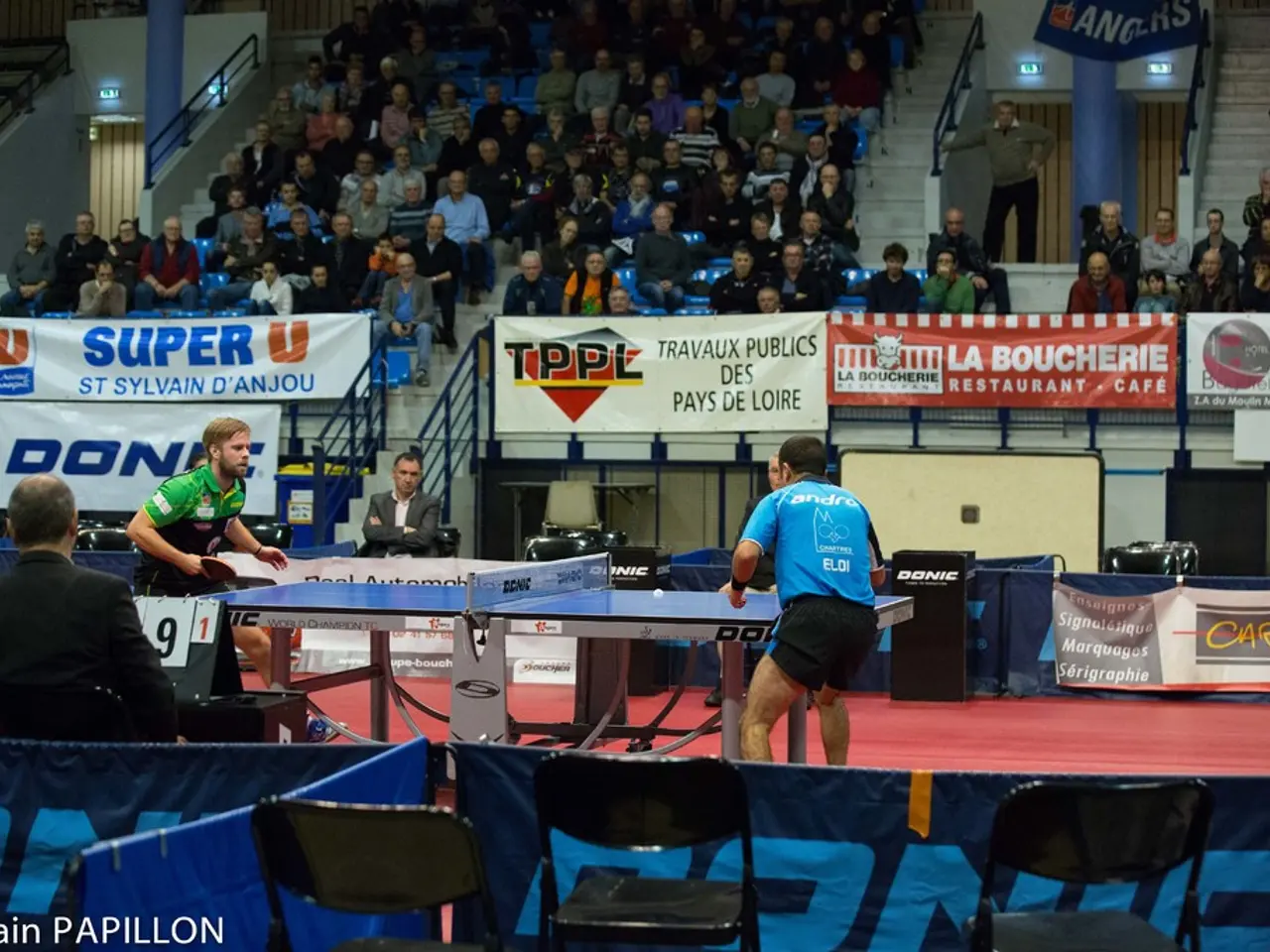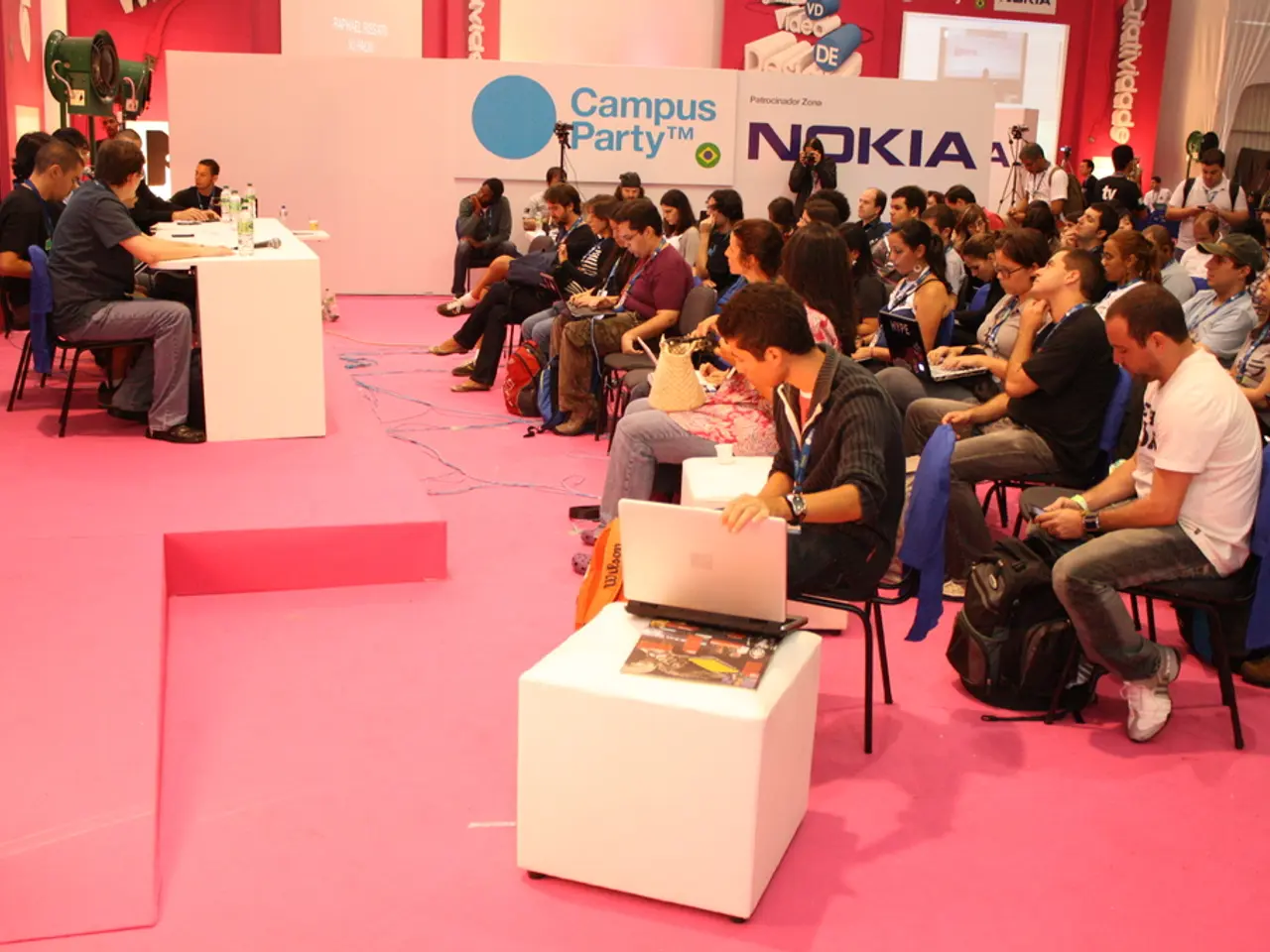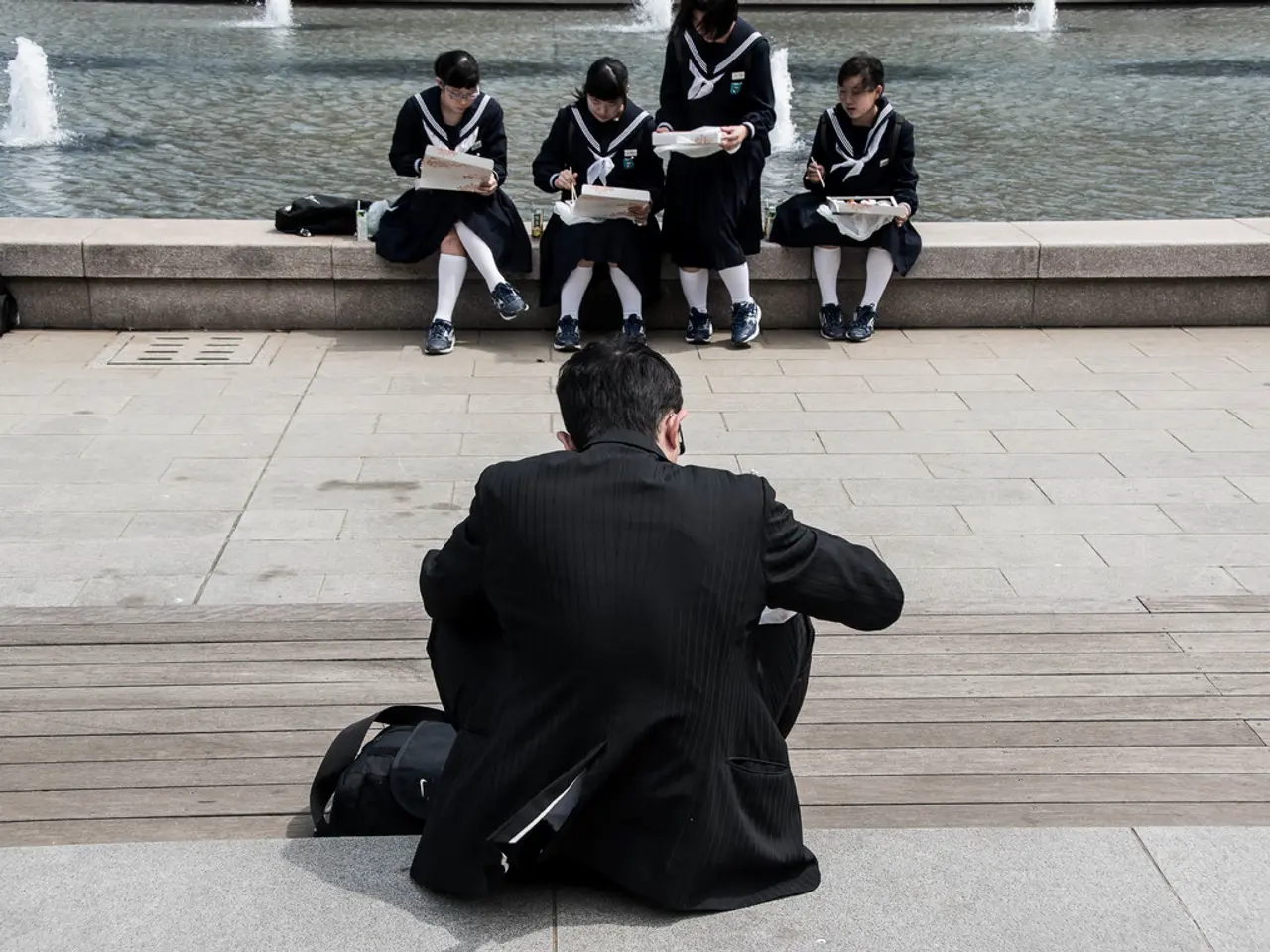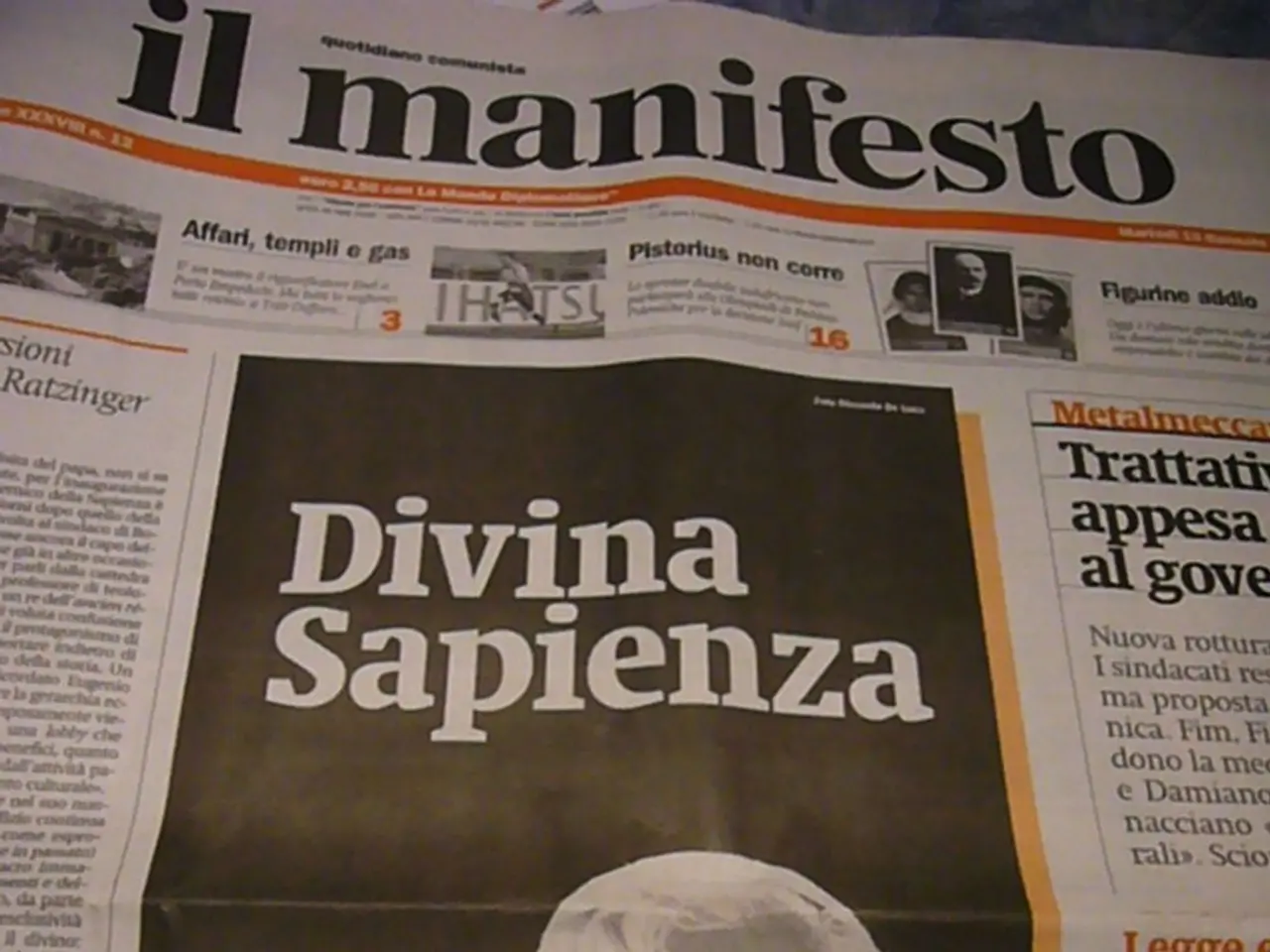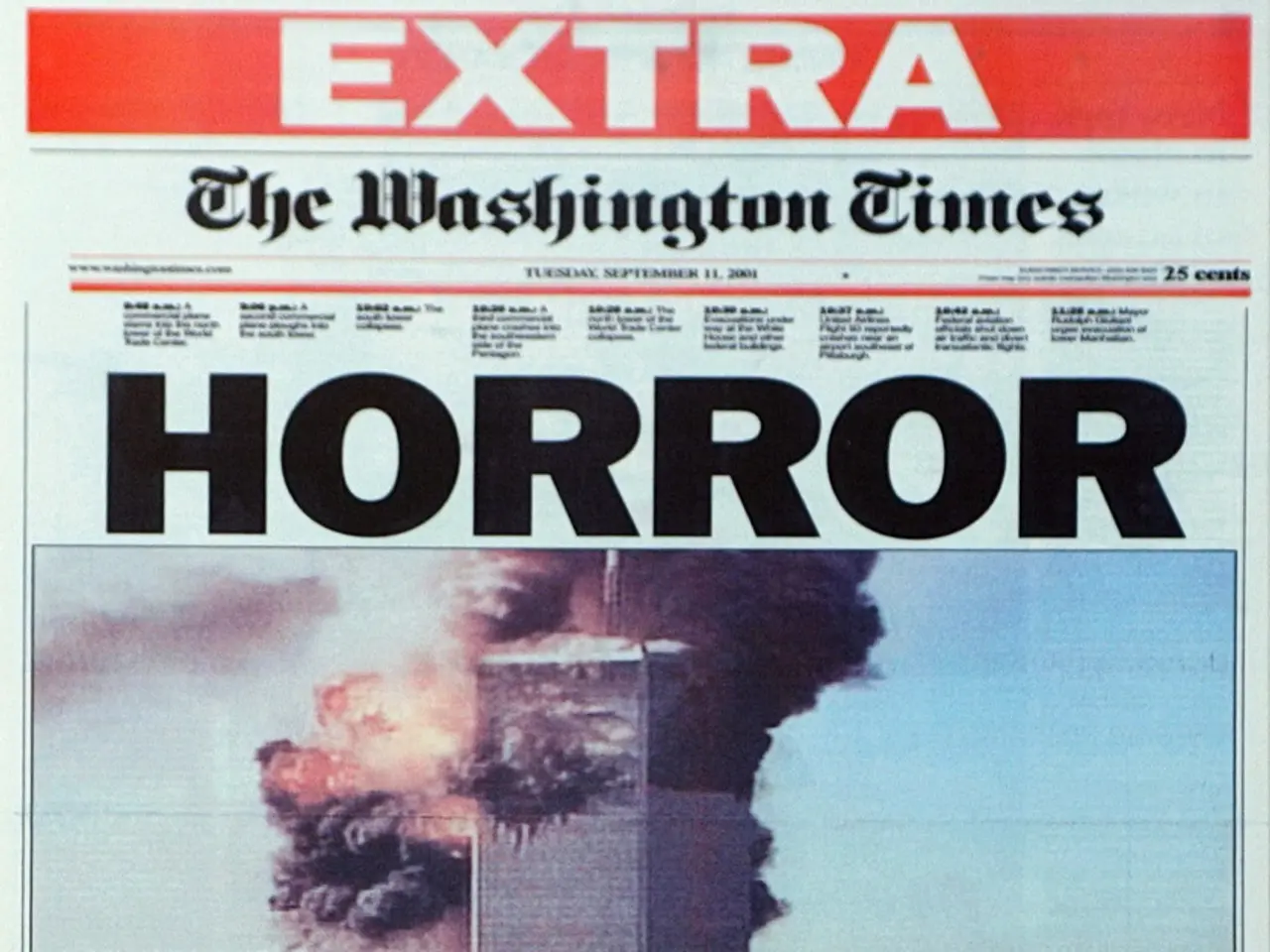Path Clears Way to Gateway Through Quietness
Picture this: you're at a football game, but it's like no other you've ever been to. There's pin-drop silence as the action unfolds on the field. Cheers erupt only when goals are scored. Welcome to the world of blind football, where sporting ambition meets inclusion and team spirit. The FC St. Pauli, current German champions in this unique discipline, are gearing up to defend their title in the Blind Football Bundesliga.
The vibe at the Hamburg Stadtpark is buzzing before the game, spectators applauding and appreciating the teams. But once the match starts, it's all about the action on the field. The arena is circled by barriers, behind which eager fans have gathered, waiting to cheer their favorites.
The Sound of Cheers, Even in Silence
A group of young kids, not older than twelve, sit on the athletics track surrounding the field, their eyes gleaming with excitement. A few minutes before kick-off, three boys dressed in FC St. Pauli fan gear come down the stairs onto the field. One of them carries a homemade flag made from paper attached to a stick, creating a rustling sound as he walks.
Vera Guthörle, along with her friends, stands near the barriers even before the game begins, faces turned towards the sun. "We bought a game from St. Pauli as a birthday gift for our friend," she explains to fellow fans. "With a group at the Millerntorstadion, that would be just impossible, so we thought let's give this a try here." One of her friends has taken the initiative and read up on blind football. She explains the game's modus operandi to the group.
Ruhe bitte - es wird gespielt!
Blind football, originated in Brazil, has organized competitions since around the 1960s. Today, it's played competitively in over 20 countries.
The stadium announcer appeals for silence: "During the game, we kindly ask for absolute silence so the players can concentrate." The match begins. Blind footballers navigate the field by voice and sound. The ball is slightly smaller and heavier than a regular ball, with built-in rattles to help players follow it. Players call out "voy" (meaning "I'm going" in Spanish) when they approach the ball or lead it, preventing collisions and foul play.
Guides are stationed behind the opposing goal, able to see and help players locate the goal and understand the action on the field. Throughout the game, guides shout instructions and comments to their teammates. The teams consist of four blind or visually impaired field players and two goalkeepers, who are sighted. To account for varying levels of visual impairment, all players' eyes are masked, and their vision is further restricted with opaque glasses. Both men and women compete in the Bundesliga.
The Training Ground Buzzes
Just two weeks prior, it's a sunny afternoon in April, and the training ground of Hamburg's Education Center for the Blind and Visually Impaired is gradually filling up. Training time. One by one, more players join the field, each carrying a rattle-filled ball on their feet. The noise level is increasing, growing more chaotic as the rattles mix with repeated "voy" shouts. The blind football team training session of FC St. Pauli is about to start.
Coach Wolf Schmidt leads warm-up and dribbling exercises, with and without balls, solo or in pairs. To begin, there's a soundcheck to help players familiarize themselves with the training ground and identify strategic landmarks. Towards the end of the training, they play a match, complete with goalkeepers and guides. Once training is over, the entire team gathers once more in a huddle - players, coaches, and guides. Schmidt delivers a clear message for the upcoming game: "We must force ourselves to work together." Better communication, he tells his players, will help them stay cool and composed on the field.
One player is Paul Ruge. He has dark hair, a slim, athletic frame, and wears a cap. At age 26, he's been playing for FC St. Pauli since 2013, ever since the club began participating in the Blind Football Bundesliga. Ruge has won four German championship titles with the club – in 2017, 2021, 2023, and 2024. Despite his knee problems, which prevented him from participating in the training session that evening, he's been part of every title-winning team.
Blind Football Grows More Intense
According to the Statistical Office of Germany, there were approximately 328,000 people with visual impairments in the country in 2023.
Paul Ruge shares his thoughts: "At first, finding orientation was tough when I still had a 10% level of vision. normally, we rely more on our eyes." Over the years, blind football has evolved. "It's become faster, more physical, and in some respects, more dangerous," Ruge explains. However, research does not confirm this, as studies examining blind football matches during the Paralympic Games in 2016 and 2020 found no significant differences in head injury frequencies[2][3]. More goals scored and fewer draws, though, indicate that the sport has grown more competitive.
The original Blind Football Bundesliga title was awarded in 2008 to SF BG Blista Marburg, a town in Hesse famous for its blind community. Since then, the sport has gained popularity, hitting a high point at the Paris paralympics, where the final game attracted 15,000 spectators[1]. A larger audience at training sessions is not anticipated, however, as the sport's intensity might deter younger players[1]. Players do wear protective gear, such as padding on their glare-reducing glasses, but collisions with teammates, opponents, and barriers are common. Even during training sessions, you can hear loud crashes when players run into the barriers or in a rush towards the ball.
FC St. Pauli Celebrates the Next Victory
In the second half of the game, it's FC St. Pauli who are leading 2:1. Coach Schmidt substitutes Paul Ruge into the game, wearing the number "Paulinho" on his jersey. And just like that, the MVP enters the fray and delivers. Ruge receives the ball, controls it deftly, and quickly navigates towards the goal. Short, unclear instructions from the guide, and Ruge scores, extending his team's lead to 3:1. The spectators go wild, and Ruge celebrates, confident that his shot found the back of the net.
Young guide Julius Kolbek, representing FC St. Pauli, runs towards Ruge for a celebration, but Ruge holds back, nursing an injury he sustained during a collision near the goal. Schmidt has to substitute him out again, but the goal is match-deciding: FC St. Pauli wins 3:2. A clear sign that the team is playing cohesively and effectively as their coach demands.
Nike Mosa
Nike Mosa, born in 2003, was a fencer for more than ten years before switching her enthusiasm to supporting her heart's team, FC St. Pauli. Despite being born in Regensburg, Nike grew up in Hamburg. She studied Journalism in university. During her internship at the "Frankfurter Allgemeine Sonntagszeitung," she pondered why young people spend millions online by donating to Twitch streamers. She wrote an article on the subject. Currently, she's part of the social media team at the Tagesschau. Despite her digital connections, Nike can do without video-assisted referees. She often wishes she could argue with their decisions.Abbr: nim
- Nike Mosahttps://our-website/author/nike-mosa/our school once again fields a team at the city cycling race
- Nike Mosahttps://our-website/author/nike-mosa/World War II bomb found in Wilhelmsburg
- Nike Mosahttps://our-website/author/nike-mosa/Elbtunnel and A7 will be closed
- Nike Mosahttps://our-website/author/nike-mosa/It's going to be a hot weekend
[1] https://www.sport1.de/aktenzeiger/fussball/blindenfuessball-fans-10-000-im-stadion-paris-2024-03-21-20238511/[2] https://www.ncbi.nlm.nih.gov/pmc/articles/PMC8323690/[3] https://www.ncbi.nlm.nih.gov/pmc/articles/PMC8893652/
- The group of young kids eagerly await the start of the football match, their eyes gleaming with excitement as they sit on the athletics track surrounding the field.
- During the game, absolute silence is requested to help the players concentrate, as they navigate the field by voice and sound in a unique display of team spirit in blind football.
